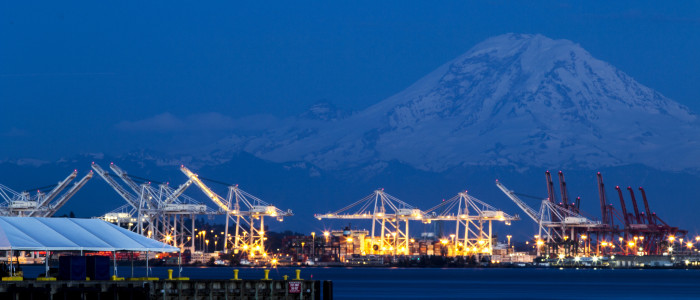While those of us on the East Coast had our own excitement last year with the ILA contract negotiations, shippers are watching with a close eye what is happening in San Francisco right now, and those are the negotiations between the PMA and ILWU on a new contract for West Coast longshoremen.
The contract expired on June 30th, but in a statement issued on July 1st, they are continuing to negotiate in good faith, both sides realizing that a work stoppage or lockout would jeopardize a very fragile economy that appears to be on the road to recovery.
Individuals involved in international trade for any number of years remember the worst crisis back in 2002 when an eight day lockout required the President to intervene and cost the economy billions of dollars in damage.
The negotiations this year are not centered on the usual concerns of base salary and compensation, but rather on the thorny issue of health insurance. The ILWU has what can be called, at a minimum, really really really good insurance. Like, $1 co-pays and crazy low deductibles. But under the Affordable Care Act, there is going to be a price to pay for that during the life of this contract, estimated around an extra $140 million that employers don’t want to bear themselves.
So…what will give; more cost sharing with ILWU members, or some other solution?
The other major discussion point this year is jurisdiction on the waterfront. There have been issues about moving work off the dock to remote locations (as anyone who has called their airline or credit card company knows, the chances of getting someone stationed in the US is pretty low) as well as which unions are responsible for matters like electrical or chassis repair or maintenance on the waterfront. Who handles what in an increasingly automated, distributed and shared economy and supply chain will need to be sorted out as well.
And both sides feel the pressure coming from many different directions. The Panama Canal, scheduled to come on line in early 2016, will mean more cargo discharging here on the East Coast from larger Post-Panamax vessels on round-the-world voyages. Container rates, which seem to always want to only go one direction and that is DOWNWARD mean increased sensitivity to price by importers and exporters alike. Finally competition not just in the USA, but from Canadian and Mexican ports which are offering shippers a chance to discharge and move inland with increasing reliability.
Time will tell and we are watching. We’ll keep you informed.
(Photo Credit: Port of Seattle’s Shipping Terminals with Mount Rainier, by Tiffany Von Arnim, CC BY 2.0)


Comments are closed.